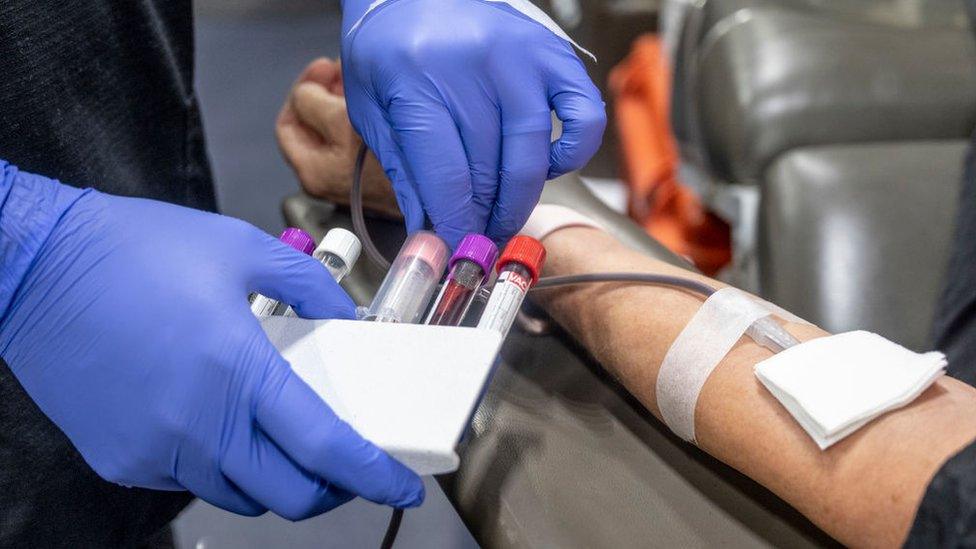US FDA relaxes blood donation rules for gay and bisexual men
- Published

The US Food and Drug Administration has eased its restrictions barring gay and bisexual men from giving blood.
The agency, in 2015, dropped a lifetime ban on donations from men who have sex with men, but its donation guidelines have been criticised for years.
The FDA's latest policy evaluates all prospective donors by the same set of criteria while screening for recent, higher-risk sexual activity.
The update takes its cue from the UK and Canada.
Both countries moved, in 2021 and 2022 respectively, to allow donations from men who have had sex with other men in the past three months.
But the rule change only applies to those who have had the same sexual partner during the period. Those who have had new or multiple partners, and anal sex, in the past three months are not eligible to give blood.
The FDA is also recommending that those who use pre-exposure prophylaxis (PRrEP) or post-exposure prophylaxis (PEP) - medications commonly used to prevent HIV infection - must defer making a donation.
The agency said use of these drugs could delay the detection of HIV and therefore turn up false negative results in a screening test.
Gay and bisexual Americans were banned from donating blood in 1983, as fear and misinformation over the spread of HIV/AIDS became widespread.
That was replaced in 2015 by a requirement for men to abstain from sex for one year before giving blood.
In 2020, the agency shortened that abstinence period to three months as the Covid-19 pandemic drained the nation's blood supply.
Blood donations have stabilised since then, but the FDA said the move to an "individual risk-based approach" could expand the donor base.
It marks a turning point for the regulator, whose previous screening rules were condemned as homophobic.
Dr Scott Hadland, a Harvard-trained physician, wrote on Twitter: "I used to routinely donate blood (and once organized a campus-wide blood drive in college) but haven't been able to for years because of this discriminatory policy. Thrilled by this change."
Gay rights advocates also welcomed the move, with the Human Rights Campaign (HRC) saying the policy "ends a decades-old ban rooted in discrimination and bias".
The Gay & Lesbian Alliance Against Defamation (GLAAD) said it "signals the beginning of the end of a dark and discriminatory past rooted in fear and homophobia", but it also had a word of caution.
"Placing potential blood donors taking PrEP in a separate line from every other donor adds unnecessary stigma," it said, adding: "The bias embedded into this policy may, in fact, cost lives."
Related topics
- Published27 January 2023
- Published22 December 2015